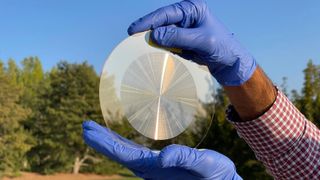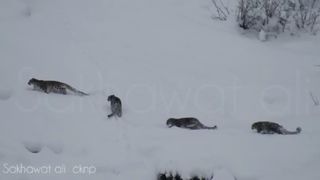Science News: Recent scientific discoveries and expert analysis
Read the latest science news and recent scientific discoveries on Live Science, where we've been reporting on groundbreaking advances for over 20 years. Our expert editors, writers and contributors are ready to guide you through today's most important breakthroughs in science with expert analysis, in-depth explainers and interesting articles, covering everything from space, technology, health, animals, planet Earth, and much more.

Explainers | Everything you need to know about the science news that matters.

Science Spotlight | Shining a light on new science transforming our world.
Latest news

China now has a 'kill mesh' in orbit, Space Force vice chief says
By Josh Dinner published
"That capability gap is significantly narrowed, and we've got to change the way we're looking at space, or that capability gap may reverse and not be in our favor anymore."

Traumatizing AI models by talking about war or violence makes them more anxious
By Drew Turney published
A recent study exposing AI models to carefully designed prompts around trauma revealed they can get anxious, potentially affecting the conversation and having negative impacts on people who use such models to discuss their mental health.

Mathematicians solve vexing 'crowd problem' that explains why public spaces devolve into chaos
By Victoria Atkinson published
Why do some crowds move in an orderly fashion while others devolve into a chaotic jumble? New research led by an MIT mathematician may finally crack the tricky crowd problem.
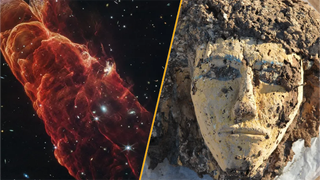
'Cosmic tornadoes', surprises from ancient Egypt and more.
By Pandora Dewan published
Science news this week March 29, 2025: Our weekly roundup of the latest science in the news, as well as a few fascinating articles to keep you entertained over the weekend.
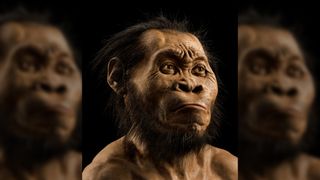
A 'landmark finding': Homo naledi buried their dead 250,000 years ago, according to newly updated research
By Kristina Killgrove last updated
Homo naledi, an extinct human relative with one-third the brain size of ours, buried and may have memorialized their dead, controversial research suggests.

Mysterious artifacts from King Tut's tomb might have been used in 'awakening Osiris' ritual
By Owen Jarus published
Four trays and four staff found in Tutankhamun's burial chamber in the Valley of the Kings may have been used in an ancient Egyptian ritual, a new paper finds.

'Totally unexpected' galaxy discovered by James Webb telescope defies our understanding of the early universe
By Skyler Ware published
Scientists studying one of the earliest known galaxies using the James Webb Space Telescope have found that the universe's Era of Reionization may have occurred much earlier than previously thought.

'This is a very big earthquake': The science behind Myanmar's magnitude 7.7 earthquake
By Laura Geggel published
Here's the science behind the magnitude 7.7 earthquake that hit Myanmar on Friday (March 28).
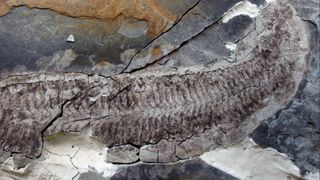
Scientists uncover 'inside-out, legless, headless wonder' that lived long before the dinosaurs
By Skyler Ware published
Fossils of 444 million-year-old creatures whose bodies were preserved "inside-out" have been discovered in South Africa.
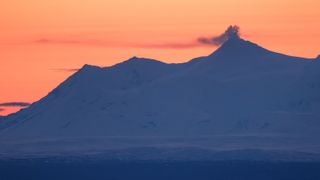
Huge steam plume rises from Alaska's Mount Spurr as volcano edges closer to eruption
By Jess Thomson published
The Alaskan Volcano Observatory has shared new images of plumes of gas streaming out of Mount Spurr, which scientists suspect will erupt in the coming weeks or months.
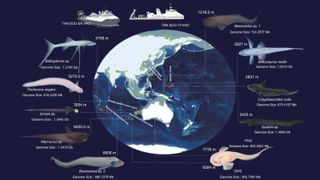
Fish in the Mariana Trench all have the same, unique mutations
By Olivia Ferrari published
Deep-sea fish adapt to some of the most extreme conditions on Earth. New research analyzing their evolution finds the same mutation across fish species that have evolved on separate timelines — alongside human-made pollutants contaminating the deep sea.

Staring at the March 29 solar eclipse can cause eye damage in seconds — and you won’t even feel it happening
By Emily Cooke published
Experts explain damage that can happen to your eyes if you stare at the partial eclipse without using adequate protection.

March 29 solar eclipse: Don't miss the rare sunrise solar eclipse over North America tomorrow
By Jamie Carter last updated
A dramatic sunrise solar eclipse tomorrow (March 29) will be the first one visible in North America since April 2024. Here's how to get the best view of the partial eclipse before it ends.
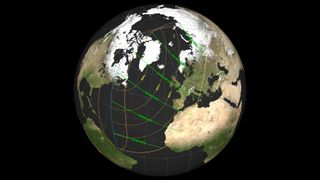
Eclipse map: What will tomorrow's solar eclipse look like from your state?
By Jess Thomson last updated
A NASA map shows the regions across the Northern Hemisphere where tomorrow's partial solar eclipse will be visible, how much of the sun will be blocked out, and what time the eclipse will hit its peak.

Which states will see the solar eclipse tomorrow — and which will see a 'double sunrise'?
By Jamie Carter last updated
Tomorrow, March 29, North America will witness its first solar eclipse since April 2024. Here are the 13 states where you'll be able to see it.

What time does the solar eclipse start tomorrow?
By Jamie Carter last updated
Tomorrow (March 29, 2025), a deep partial solar eclipse will be seen at sunrise in North America and midmorning in Europe. Here's what time to watch the celestial spectacle unfold.

How to watch tomorrow's solar eclipse from anywhere on Earth
By Brandon Specktor last updated
A rare sunrise solar eclipse will be visible from 13 U.S. states tomorrow (March 29), as well as locations in Canada and Europe. Here's how to watch for free online, no matter where you are.
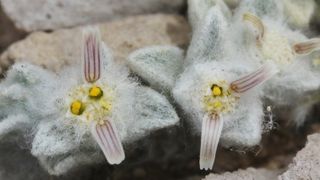
'Woolly devil' flowers in Texas desert are the 1st new plant genus discovered in a US national park in almost 50 years
By Olivia Ferrari published
A newly discovered plant found by a national park volunteer in the Texas desert is a small, fuzzy flower that pokes up between rocks. With its limited range, this species could be threatened by climate change.
Sign up for the Live Science daily newsletter now
Get the world’s most fascinating discoveries delivered straight to your inbox.

